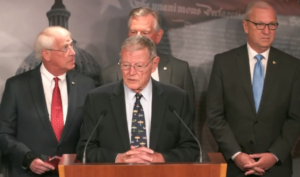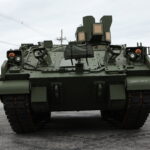
Republicans on the House and Senate Armed Services Committee are calling for President Biden to request a defense budget for fiscal year 2023 that would reflect a five percent increase above the “inflation-adjusted” spending level set for the current fiscal year. The GOP members of the Armed Services Committees detailed their request for the defense spending boost in a letter to Biden on Wednesday, which arrives as the White House is set to roll out its FY ‘23 budget request…

 By
By 











